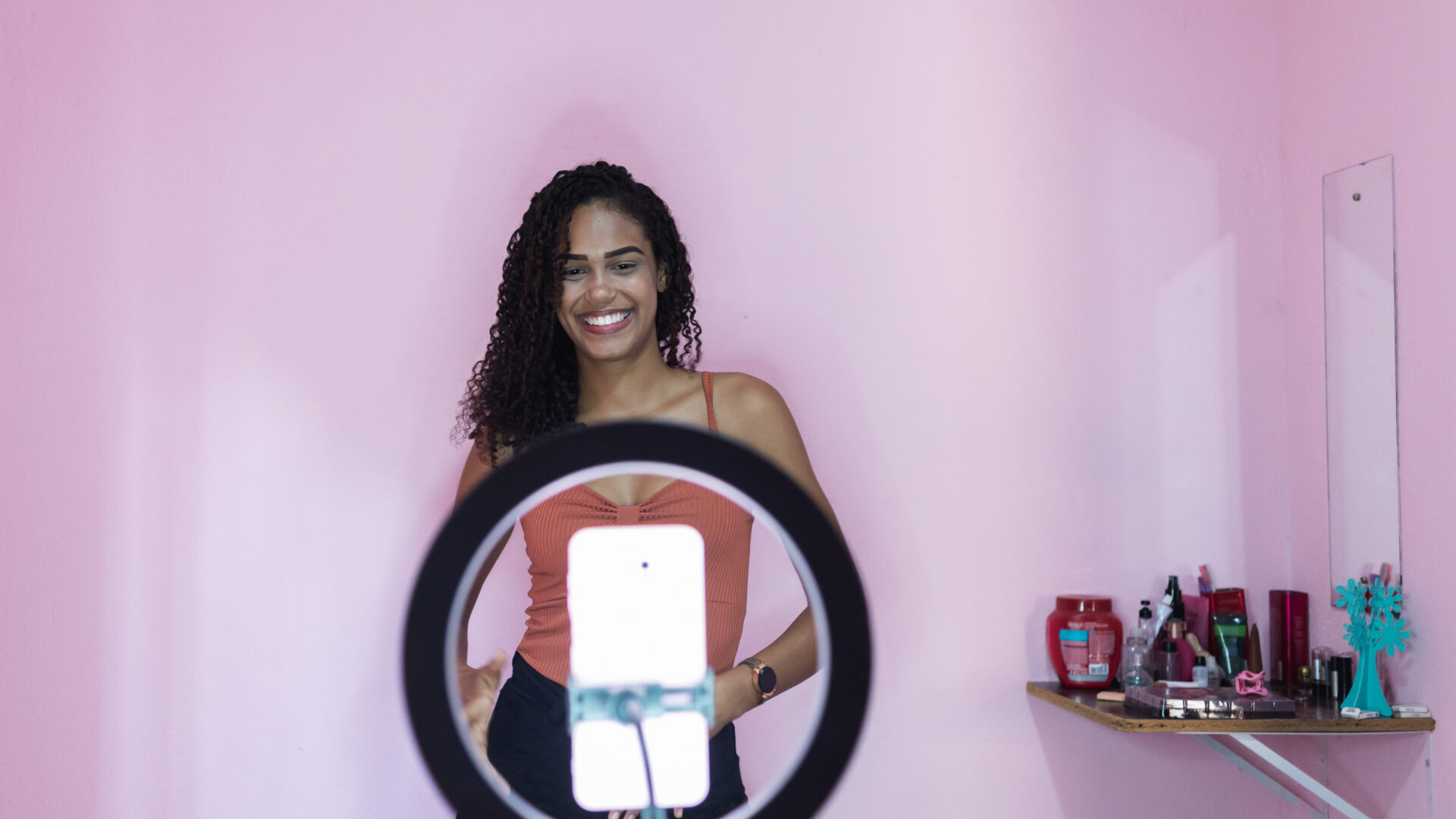
1 in 4 Gen Zers plan to become an influencer. Meaning 1 in 4 Gen Zers plan to become experts in their niche and build a reputation on social media, persuading their followers to purchase products marketed to those with the same interest.
Being a content creator requires a reliance on platforms such as Instagram, TikTok, Facebook, and Twitch, which may not be the healthiest. Generation Z has been called ‘the most depressed generation,’ and social media can contribute to that. Therefore, should the aspirations of Gen Z change?
“The average American picks up their phone 96 times per day,” says Licensed Clinical Therapist and Leadership Consultant Charese Josie. “When we pick up the phone, it stimulates the brain as a reward.”
Elucidating that we’ve programmed our brains into thinking we’ve done something “right” when we pick up our phones, check notifications, and scroll through social media. “When we stop, the brain releases a stress hormone called cortisol. So when we stop using social media, there’s an increase in anxiety, stress, and depression because our brain no longer feels like it’s being rewarded.”
We’ve programmed our brains to think using our phones less is a punishment, hindering us from being in the moment and building healthy relationships in person. We have to retrain our brains into thinking that face-to-face connection is a good thing so that we can stop being so reliant on screens for that.
Since it’s in the title, it’s hard for social media influencers to take time away from social media. When asked how often Evangelia Greene, faith and lifestyle content creator, produces content, her immediate response was “every day.”
She manages three platforms for her brand. Corporations have teams to do what she’s curating herself. She not only has to mass produce content, but it has to be of quality. “It’s never just whipping out a phone and recording, you have to make sure you’re getting the right angles, shots, lighting, etc.,” Greene told GU.
We can only imagine this increasing the dependency on the phone. Greene must build a strong community of followers for influencing to be successful. She has to engage with those who react to her content to do this. She’s naturally become hyper-aware of when viewers leave comments or responses because it’s a part of her job. There’s both a physical and emotional investment in your work as a content creator, making it even more difficult to disconnect.
Beyond using her phone to shoot quality content and build community through social media, Greene was transparent about the bullying that can occur as an influencer. She said that, personally, it contributed more to mental drainage than the necessity to post constantly.
“People get upset when you post certain things on your Instagram or TikTok. You’ll get haters. People in my DMs have insulted me, calling me the devil’s spawn, stupid, dumb… I’ve literally had it all.”
As a result, she stopped creating content for 3-5 months, even though she loved her role as a social media influencer. After much self-reflection and peer encouragement, she started creating content again but learned to silence the trolls.
“I’m just going to mute or block you because you will not steal my peace or joy!” she exclaimed. She took the time to discover her why behind content creation and limited her consumption while producing.
Evangelia Greene has learned a lesson that Charese Josie encourages every Gen Zer to know if they are going to pursue a role as a content creator- balance. “Anything is healthy with balance and responsibility,” Josie said.
“We have to be mindful of when, how often, and long we’re consuming.” She also says determining the heart posture behind why you’re posting is the threshold between healthy and unhealthy. “What are our intentions? If it’s strictly for validation, then we need to be conscious.”
By implementing these practices, creators can establish boundaries to have a beneficial relationship with our phones, notifications, and social media. Lastly, Josie says, we should “retrain our brains so that there’s other safe spaces for us to settle and receive the same reward feeling.”
The addiction to our screens is rooted in the desire to feel connected, and connection can come from family, friends, God, nature, etc. “The goal is saying, ‘I have grown to train my body and learned to trust myself that I can be rewarded and get satisfaction both physically and emotionally outside of social media.’ Then our brain says, ‘This is great, this is what I need,'” she ends.
The moral of the story, get the content creation bag but chase wellness too. We often sacrifice one for the other when the cheat code to a great life is the balance of both. Cheers to black girls curating a life of both health and wealth.
About the author: Shelby Denise Smith is a full-time Social Media Editor and part-time Freelance Writer. She loves writing about news, wellness, and beauty and hosting impactful conversations with influencers and experts on those subjects.